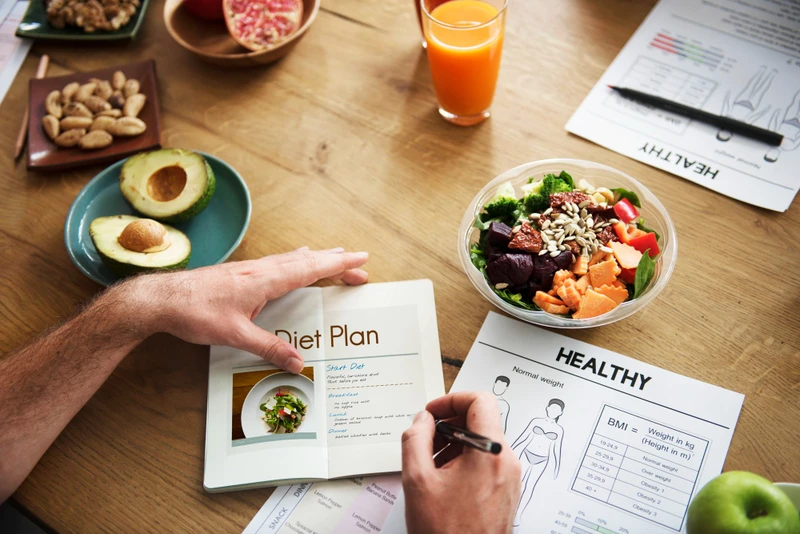- Published on: May 28, 2022
- 3 minute read
- By: Second Medic Expert
Diabetes Diet: Create Your Healthy-eating Plan
The best diabetes diet is one that is low in refined carbohydrates and sugars, and rich in healthy fats, proteins, and vegetables. This type of diet can help to keep blood sugar levels under control and prevent the complication of diabetes. There are many different ways to create a healthy diabetes diet plan, but some basic principles include eating smaller meals more frequently throughout the day, avoiding processed foods and sugary drinks, and incorporating plenty of fresh fruits, vegetables and whole grains into your meals. It is also important to get regular exercise as this can help to keep blood sugar levels in check. If you are struggling to control your diabetes with diet alone, there are medications available that can help you reach your goals.
When it comes to diabetes, there is no one-size-fits-all diet. Of course, eating healthy is important for everyone, but if you have diabetes, it's even more important to pay attention to what you eat and how it affects your blood sugar levels. The good news is that you can still enjoy a variety of foods; you just need to be mindful of portion sizes and choose foods that will help keep your blood sugar levels in check.
Diet is important for managing diabetes. That’s why it’s important to create a healthy-eating plan that works for you. There are no hard and fast rules when it comes to eating with diabetes. However, there are some general guidelines that can help you make smart food choices. For example:
-Choose foods that are high in fiber and nutrients and low in calories, fat, and sugar.
-Focus on fruits, vegetables, whole grains, lean protein, and healthy fats.
-Limit processed foods, sugary drinks, and red meat.
-Spread out your meals throughout the day and include snacks if needed.
When you have diabetes, your body cannot process sugars properly. This means that you need to be extra careful about the foods you eat and make sure to monitor your blood sugar levels closely. Eating a healthy diet is an important part of managing your diabetes. There's no one-size-fits-all diabetes diet, but there are some general principles you can follow to make sure your eating plan is healthy and balanced. The most important thing is to eat a variety of different foods from all the main food groups, including Plenty of starchy carbs 48g/day for women or 60g/day for men (this covers around 30% of your daily calorie intake) Root vegetables and pulses - at least 1 portion (120g) a day Fruit and vegetables - at least 2 portions a day wireless monitoring system Some protein with each meal - around 2 3 ounces (75 100g) per person per meal, or 5 7 ounces.
When it comes to Diabetes diets, the best strategy is to focus on healthy eating plans that are high in fiber and low in refined carbohydrates. Complex carbohydrates (like those found in whole grains, beans, and vegetables) take longer for your body to digest and convert into sugar, so they're a better choice than simple carbs (like those found in white bread, pastries, and sugary drinks). And when you do eat simple carbs, be sure to pair them with a source of protein or fat (like yogurt, peanut butter, or an egg) to help slow down the absorption of sugar into your bloodstream.
No single diet can cure or prevent diabetes but making healthy food choices can help you manage your condition. Focus on eating the following foods:
Fresh fruits and vegetables. These are packed with nutrients and fiber, which can help keep your blood sugar level under control. Aim for at least four servings per day.
Whole grains. Choose oats, brown rice, and whole-wheat bread and pasta over their white counterparts. These complex carbs take longer to break down, so they don’t cause spikes in your blood sugar levels.
Lean protein. Chicken, fish, tofu, and legumes are all good choices. They fill you up without adding a lot of calories or unhealthy fats.
When it comes to managing diabetes, diet is one of the most important factors. What you eat can help control your blood sugar levels, manage your weight, and reduce your risk of complications. That’s why it’s important to create a healthy-eating plan that works for you. There are no “wrong” foods when it comes to diabetes, but some foods may be better choices than others. In general, aim for a diet that is high in fiber and low in sugar, fat, and salt. Fresh fruits and vegetables, whole grains, lean protein, and healthy fats like olive oil are all great choices. There's no one-size-fits-all diabetes diet, but a healthy eating plan should include plenty of fresh fruits and vegetables, whole grains, lean protein sources, and healthy fats. It's also important to limit or avoid processed foods, sugary drinks, and excessive amounts of saturated and unhealthy fats. And always consult with your healthcare team before making any major changes to your diet.
A healthy diet is an important part of managing diabetes. While there is no one-size-fits-all diet for people with diabetes, there are some general guidelines that can help you create a healthy eating plan. The foundation of a healthy diabetes diet is typically produced up of nutrient-dense whole foods including vegetables and fruits, lean protein sources, and healthy fats. It’s important to fill your diet with nutrient-dense foods as they provide vitamins, minerals, and fiber that are all essential for good health. This can help you control your blood sugar levels and manage your weight.









